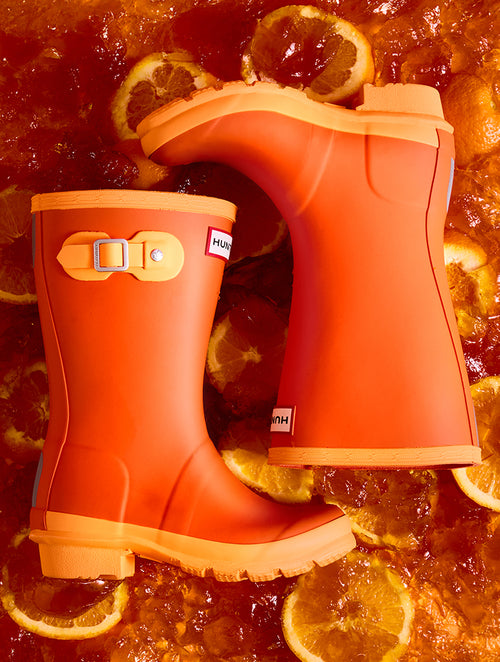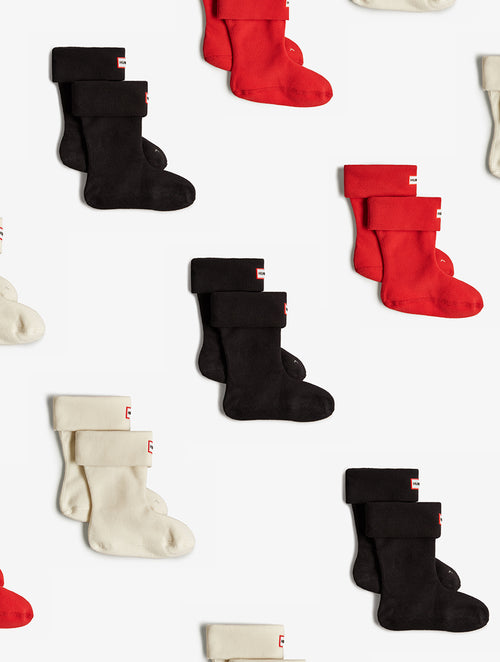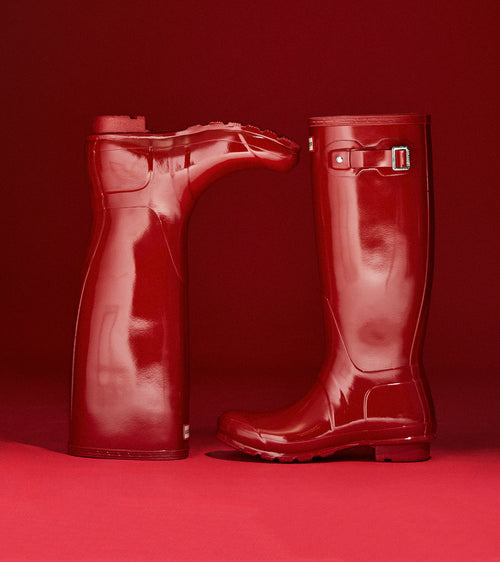Created in collaboration with the Gladwin Brothers, champions of countryside cooking, this Beef Wellington celebrates the marriage of rural craftsmanship and culinary excellence. Like our iconic boots, this dish brings together quality ingredients in thoughtful layers for a true British classic. Perfect for gathering around the table whatever the weather, it invites you to explore extraordinary flavours while embracing our shared heritage of outdoor living and good food.
THE INGREDIENTS
BEEF
- 1.2kg beef fillet
- Salt and freshly ground black pepper
- A drizzle of rapeseed oil
ONION COMPOTE
- 3 red onions, sliced
- 80g raisins
- 1 tsp ground mixed spice
- 80ml port
PANCAKES
- 50g plain flour
- A pinch of salt
- 1 egg
- 2 tbsp chopped fresh herbs, such as parsley, chervil or basil
- 100ml milk
CRUST
- 400g ready-rolled puff pastry
- Flour, for dusting
- 1 egg, beaten
EMULSION
- 40ml white wine vinegar
- Juice of 1 lemon
- 4 egg yolks
- 1 tbsp Dijon mustard
- 2 tbsp horseradish relish
- 150g butter
Prepare the Beef & Compote
Season the beef with salt and pepper, and rub with a little oil. Heat a heavy-based dry pan over high heat, and sear the meat on all sides for 1–2 minutes. Remove from the pan and allow to cool.
Prepare the compote. Put the onion, raisins, spices and port into a small pan over moderate heat, bring to a boil, reduce the heat, and simmer until the wine has evaporated; allow to cool.

Make the Pancakes
Make the pancakes. Whisk the flour, salt and egg together, add the flour and herbs, and continue to whisk into a smooth batter.
Heat a non-stick pan over a moderate heat and rub with a little oil. Ladle in about a quarter of the pancake mix, cook one side, flip over and cook the other side. Transfer the pancake to a cooling rack, then repeat the process to make 3 more.

Assemble the Wellington
Flatten out the ready-rolled pastry on a floured work surface and trim it to a rectangle measuring 30cm x 20cm.
Place the pancakes on the pastry to cover it completely, spoon the red onion mixture along the centre and place the beef on top.
Carefully wrap the pancake layer over the meat and tuck it in. Now wrap the pastry over to form a tight cylinder, seal the join with a dab of water, turn the parcel over, then tuck and seal the ends under.
Cut the pastry offcuts into 1cm wide strips, brush them with water and lay them across the wellington in a lattice pattern. Glaze the pastry with beaten egg and transfer the wellington on to a baking tray lined with baking paper. Store in the fridge until ready for final cooking.

Prepare Sauce & Bake
Prepare the emulsion. Put the vinegar and lemon juice into a small pan over a moderate heat, boil rapidly until reduced by half. Add the butter to the pan and stir until it has melted. Put the egg yolks, mustard and horseradish relish into a bowl set over a pan of simmering hot water; season with salt and pepper. Beat the egg mixture with a hand whisk for one minute. While still beating, slowly pour the hot butter mixture into the bowl a little at a time. Continue to beat until the sauce emulsifies and thickens, then taste and season again.
Remove the Wellington from the fridge 30 minutes before cooking. Preheat the oven to 200C. Roast the wellington in the oven for 20-25 minutes, until the pastry is golden brown.
Keep it warm, allowing it to rest for 20 minutes before carving and serving with a generous dollop of the horseradish emulsion.

A Conversation With...

An interview with the Gladwin Brothers exploring the philosophy of seasonal cooking, foraging, and countryside living.
How do you incorporate foraged and locally sourced produce into your menus while keeping dishes exciting and innovative?
Foraging and using seasonal, local produce is at the heart of everything we do. It's what keeps our menus exciting - constantly evolving with the seasons, allowing us to reinvent dishes in fresh and creative ways.
Whether you're farming, foraging, or cooking, proper gear is key. What are your go-to countryside essentials when working outdoors?
Short shorts and wellies - every countryside man's favourite look! But in midwinter, a thick jacket over a T-shirt is ideal for staying warm while still moving freely.
Are there any underappreciated British ingredients you think deserve more attention?
English wines! Just kidding. I think brussel sprouts often get a bad reputation, especially at Christmas. They can be really exciting when prepared differently. Oliver makes a shaved Brussels sprout salad that's served raw and feels so good to eat in the winter months. I love it!
Your philosophy brings together farming, hospitality, and nature. How do you integrate these elements to create a truly immersive dining experience?
It's a natural process and it's how we started - always staying true to the seasons and value of ingredients makes you instinctively feel good. Slow-cooked root vegetables in winter suits the colder weather, while light, fresh dishes work beautifully in summer heat. What grows together, goes together!
Regenerative farming is at the heart of your work. What does it mean to you, and how does it shape the way you grow and source produce?
Regenerative farming, to me, means open fields, wild sorrel ready to be picked, and a cow grazing somewhere in the distance. It's about working with nature, not against it. The countryside provides the space and freedom we need to grow food in a way that nurtures the land. Our land is a powerful beast and we need to respect love it!
Foraging played a big role in our day at Nutbourne Vineyard. What are some of your favourite wild ingredients to cook with each season?
Wild garlic is a staple - it signals the arrival of spring and the end of the 'hunger months.' Elderflower is another favourite. Over the years, I've had many managers and future hospitality professionals join us, all because of the reputation of our elderflower cocktails - especially when we serve them with the flower heads floating in the drink!









